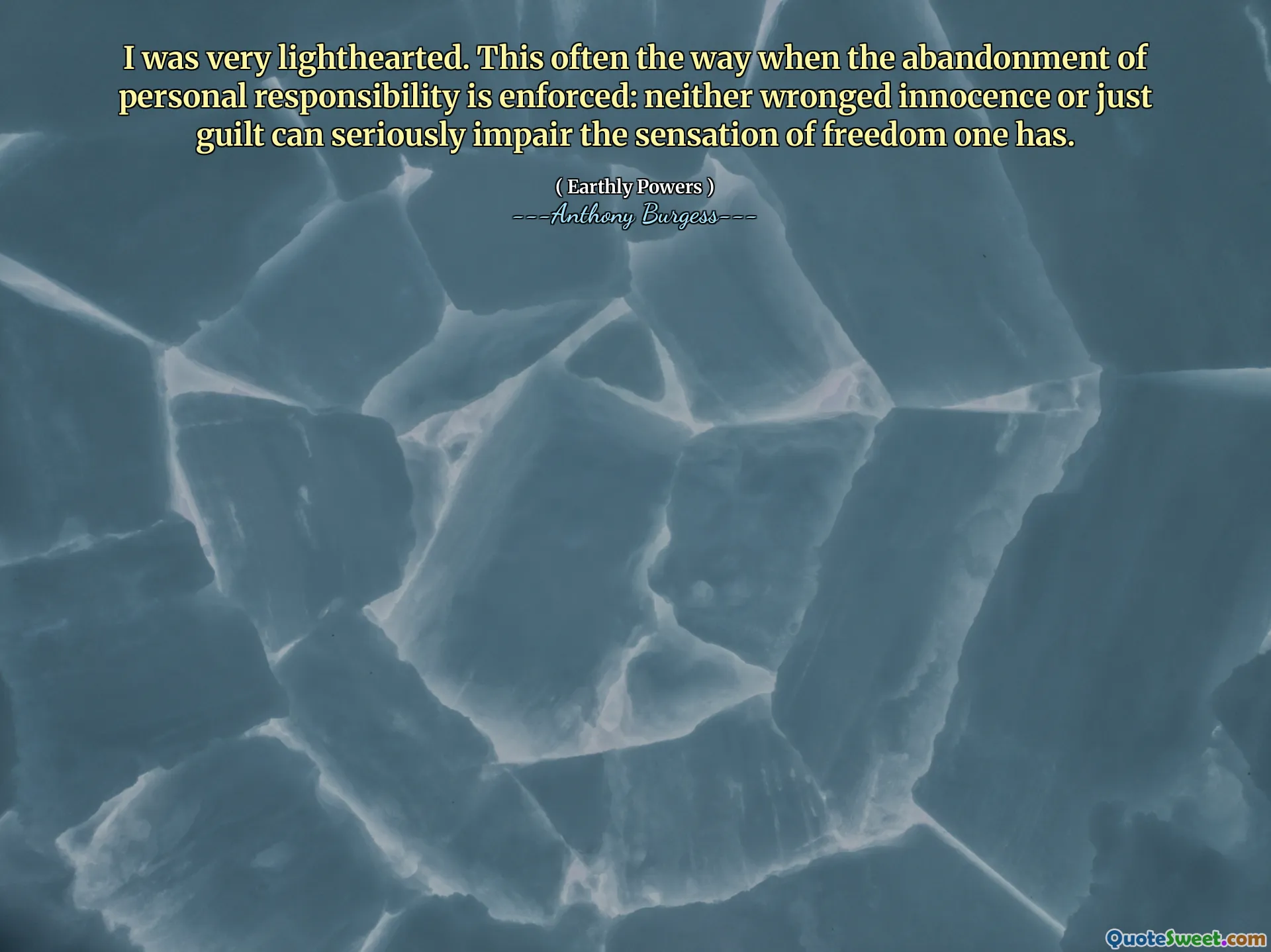
I was very lighthearted. This often the way when the abandonment of personal responsibility is enforced: neither wronged innocence or just guilt can seriously impair the sensation of freedom one has.
In Anthony Burgess's book "Earthly Powers," the narrator reflects on a state of being that is characterized by lightheartedness, which stems from a lack of personal responsibility. This sense of freedom allows one to feel unburdened by the weight of guilt or the pain of being wronged, thus creating a carefree disposition. Such a perspective suggests that when individuals are relieved of their moral obligations, they can experience a liberating sense of joy.
This notion highlights the complexity of human emotions, particularly as they relate to accountability. The idea posits that losing oneself in a carefree state can obscure the harsher realities of guilt and justice. Ultimately, Burgess's exploration delves into the tension between freedom and moral responsibility, inviting readers to contemplate the implications of relinquishing personal accountability.





